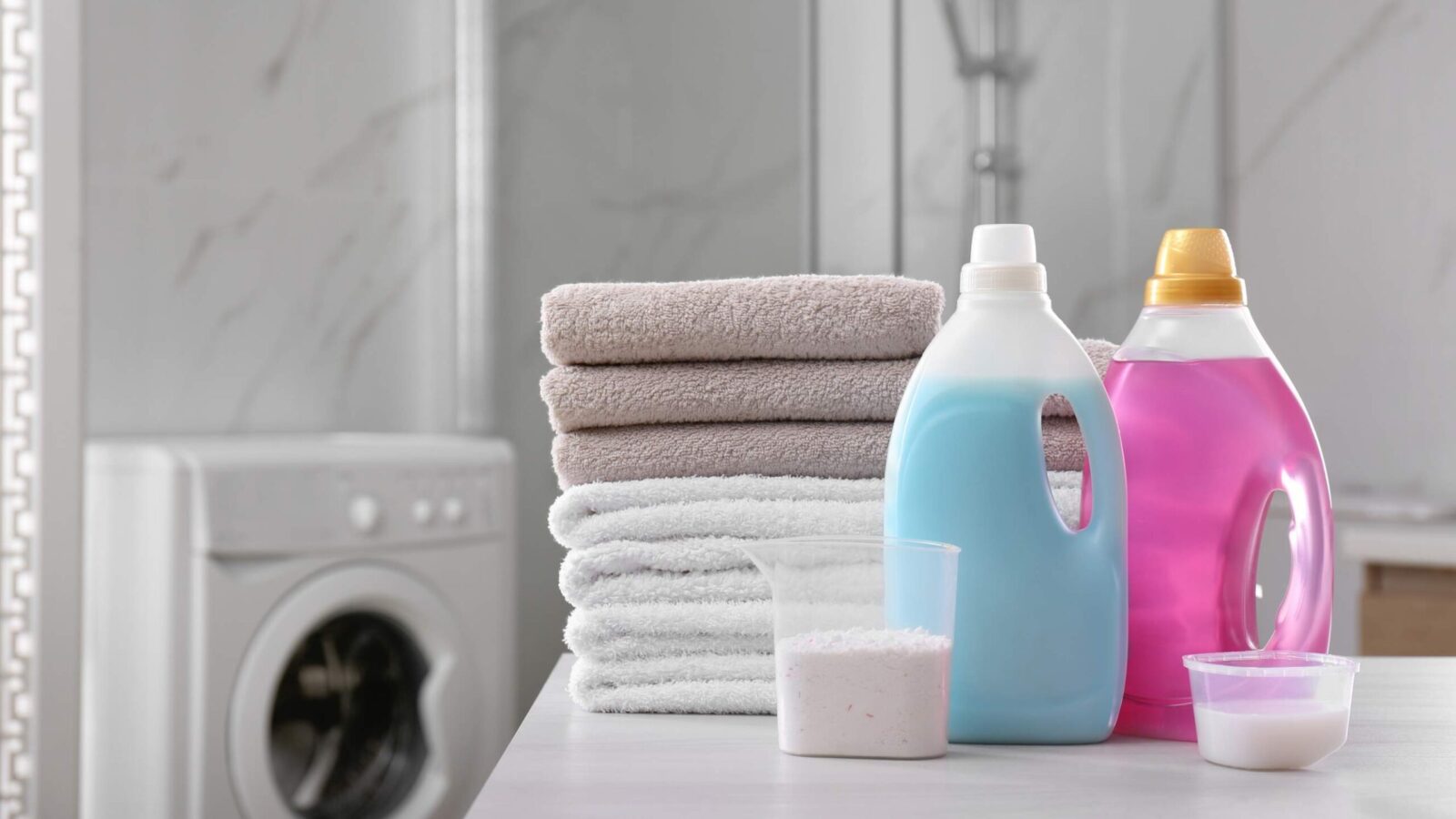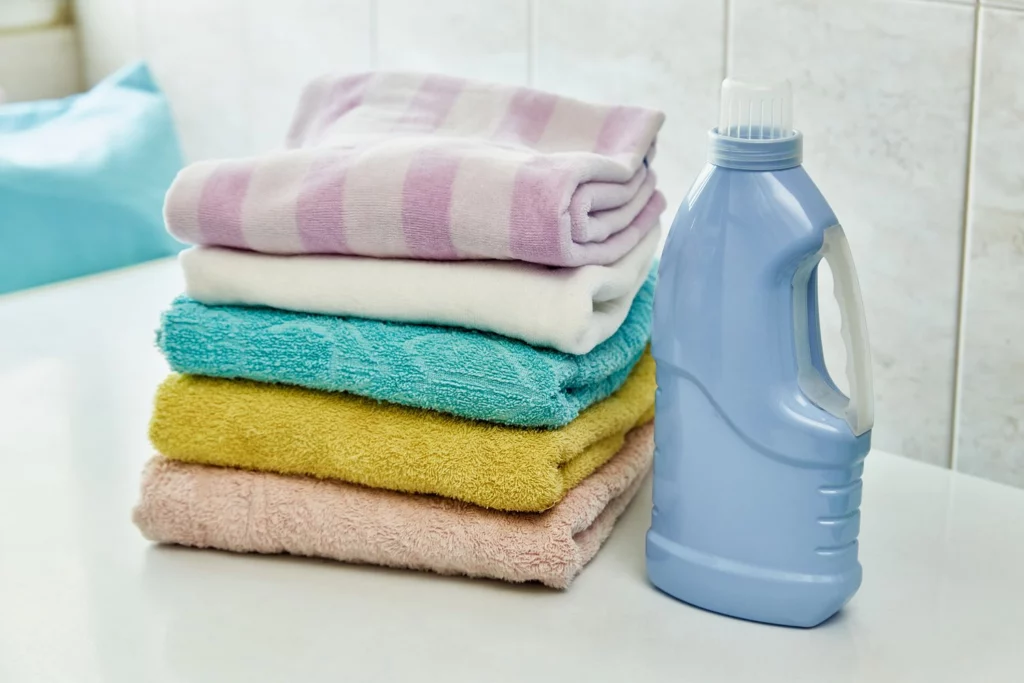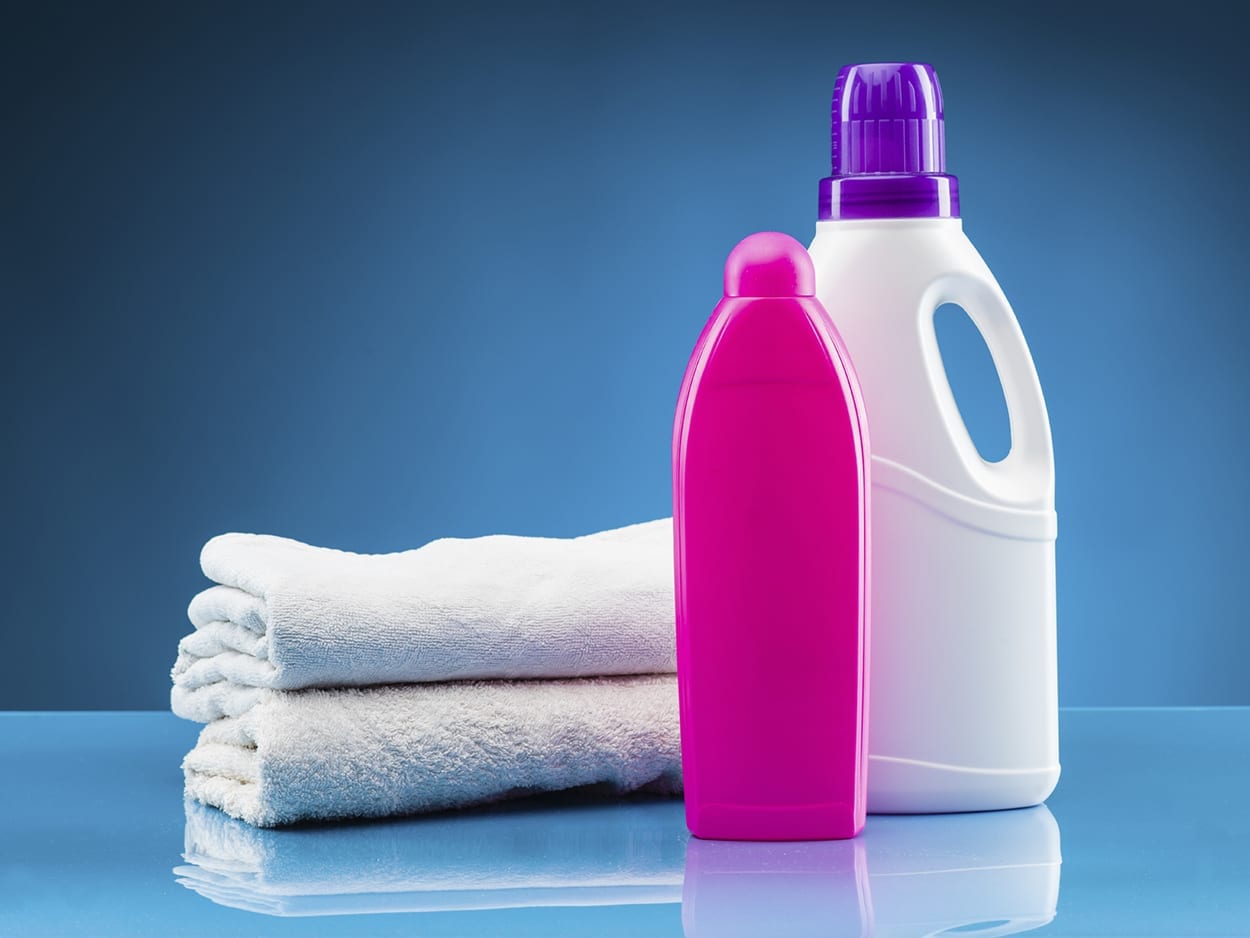
How To Choose The Right Floor Cleaners – A Buyer’s Guide
Choosing the right floor cleaner is essential for maintaining cleanliness, safety, and the longevity of your floors. With a vast...

Get 20€ off on your first order!
Choosing between scented and unscented fabric softeners can transform your laundry routine. This guide breaks down the key differences, helping you find the perfect match for your preferences and needs. Whether you love a fresh fragrance or need a gentle, hypoallergenic option, you’ll gain clear, practical insights. Plus, we’ll guide you on what to pair with your choice for a seamless and satisfying laundry experience.
This is a child article of How To Choose The Right Fabric Softeners – A Buyer’s Guide.
Scented fabric softeners are popular for their ability to add a pleasant, long-lasting fragrance to your clothes. These products are infused with aromatic compounds that range from floral to fresh linen to tropical scents. They’re ideal if you enjoy a laundry routine that leaves your garments smelling fresh and inviting.
For a detailed breakdown of scented options, visit this guide.
Unscented fabric softeners are designed for those who prefer a neutral laundry experience or have skin sensitivities. These products focus on softening fabrics without any added fragrance, making them suitable for babies, allergy sufferers, and eco-conscious individuals.
For more information on choosing unscented products, check this guide.

The table below highlights the key differences to help you decide. Use it to compare features and find the best fit for your needs:
| Feature | Scented Softeners | Unscented Softeners |
| Fragrance | Wide variety of scents available | No added fragrance |
| Skin Sensitivity | Scented options are ideal for those without skin sensitivities, while unscented options cater to those needing hypoallergenic solutions | Hypoallergenic, suitable for all ages |
| Odor Masking | Effectively masks odors | Best suited for maintaining a neutral and fresh fabric profile |
| Environmental | Often includes a variety of fragrance options, with some products offering natural scents | Environmentally conscious options available |
| Use Case | Ideal for fragrance lovers | Best for sensitive skin and allergies |
When deciding between scented and unscented fabric softeners, consider these factors:
Do you enjoy your laundry with a distinct fragrance, or do you prefer a neutral smell? Scented options like lavender or citrus can create a luxurious feel, while unscented options ensure simplicity.
Unscented softeners are an excellent choice for those with sensitive skin or eczema, offering a gentle and soothing option. Products labeled “hypoallergenic” ensure minimal risk of irritation.
If eco-friendliness is a priority, opt for biodegradable and fragrance-free products. Look for certifications like the EU Ecolabel for assurance.
Delicate fabrics and performance wear may benefit from softeners designed specifically for their needs. Scented options might not be suitable for moisture-wicking clothes.
Choose unscented or natural options to promote respiratory comfort.
Regardless of your choice, follow these tips for optimal results:
Explore our wide selection of Fabric Softeners to discover top-rated scented and unscented options, including eco-friendly and hypoallergenic choices. For related products, check out:
For more tips, read:
We hope this guide has been helpful in understanding the factors that matter most when choosing between scented and unscented fabric softeners, from personal preferences to skin sensitivities and environmental considerations. Whether you’re seeking a luxurious fragrance or a gentle, hypoallergenic solution, we’re here to help you make the best choice for your laundry routine.
Explore our full range of Fabric Softeners on Droppe, featuring trusted brands designed to enhance your laundry experience.
Have questions or need tailored advice? Feel free to reach out—our team is always here to ensure you find the perfect solution for your laundry needs.
– The Droppe Team
No, some fabrics like microfiber, athletic wear, and flame-resistant materials may not be suitable for fabric softeners. Always check the care label.
Follow the instructions on the product label. Typically, a small capful is sufficient for most loads.
For babies or individuals with sensitive skin, it’s best to use unscented or hypoallergenic fabric softeners.
Yes, fabric softeners are designed to reduce static, making your clothes less prone to cling.
Absolutely! Unscented fabric softeners provide the same softening benefits without added fragrances.
Thank you! You've signed up for our newsletter.



















Choosing the right floor cleaner is essential for maintaining cleanliness, safety, and the longevity of your floors. With a vast...

Looking for the right industrial cleanser for your business? Whether you need to clean heavy machinery or maintain hygiene in...

Deciding between liquid fabric softeners and dryer sheets? This guide makes it easy. You’ll learn everything you need to choose...

Choosing the right floor cleaner is essential for maintaining cleanliness, safety, and the longevity of your floors. With a vast...

Looking for the right industrial cleanser for your business? Whether you need to clean heavy machinery or maintain hygiene in...

Deciding between liquid fabric softeners and dryer sheets? This guide makes it easy. You’ll learn everything you need to choose...
Get 10€ off on your first order!
Save 30% by buying directly from brands, and get an extra 10€ off orders over €100
Save 30% by buying directly form brands, and get an extra 10€ off orders over €100